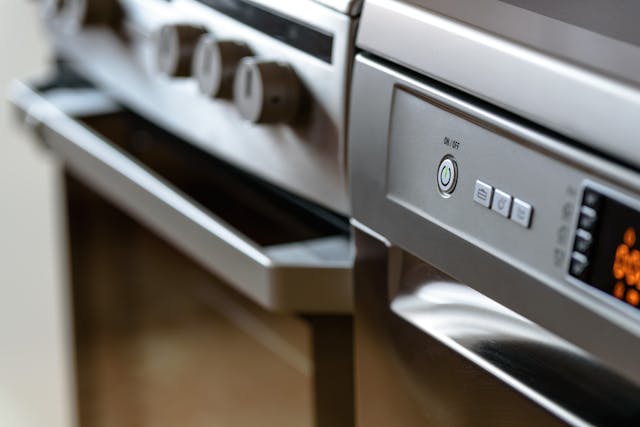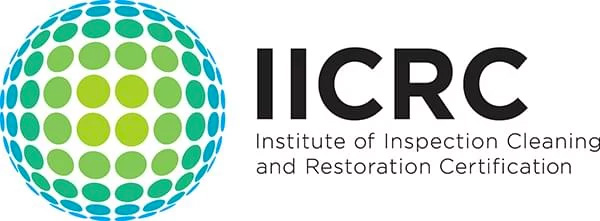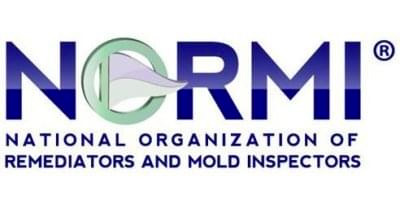Frequently Overlooked Areas for Mold in Your Florida Home
Key Takeaways
- Rapid Mold Growth: Florida’s humid climate allows mold to develop in 1–2 days on moist surfaces.
- HVAC Systems: Condensation in air conditioners and ducts can spread mold if not maintained.
- Window Tracks/Sills: Hidden moisture buildup promotes mold, often missed behind curtains.
- Under Sinks/Appliances: Leaks in dark, enclosed spaces like cabinets or behind refrigerators foster mold.
- Attics/Crawl Spaces: Poor ventilation and leaks cause hidden mold on beams and insulation.
- Actionable Insight: Inspect these areas regularly and control humidity. Contact Markham Services for professional mold inspections to prevent issues.
Mold can start developing on moist surfaces in as little as one to two days, especially in environments with high humidity. This makes Florida homes especially vulnerable due to the state's warm and humid climate.
High levels of moisture from rain, humidity, and even daily activities like cooking or showering can lead to mold growth if not properly controlled.
Markham Services put together this article to help Florida homeowners better understand where mold may be hiding.
By learning about these frequently overlooked areas, you can take steps to identify and treat mold before it becomes a serious health risk or causes structural damage to your home.
Commonly Missed Mold-Prone Areas in Florida Homes
Air Conditioning Systems and Ductwork
Florida homes rely heavily on air conditioning to stay cool. However, the inside of your HVAC system can become a breeding ground for mold if it isn't cleaned and maintained properly.
Condensation can build up in the ducts and inside the unit itself, especially when filters are dirty or drainage is poor. When mold grows in your HVAC system, it can spread spores throughout the entire house every time you turn on the air.
Window Tracks and Sills
In a humid climate like Florida's, moisture easily accumulates around windows. Over time, this can lead to mold growth in the tracks and on the window sills.

These areas are often hidden by blinds or curtains and are not always cleaned regularly, making them easy to overlook. Mold in window tracks can be particularly harmful because it is close to areas where people breathe, especially when windows are open.
Behind Wallpaper and Wall Paneling
In older homes or rooms with wallpaper, mold can grow undetected behind the paper. If moisture gets trapped between the wall and the wallpaper, it creates the perfect environment for mold.
The same issue can occur behind decorative wall paneling or tiles, especially in bathrooms or basements. Homeowners often don’t discover mold in these spots until there is a visible sign or a musty smell.
Attics and Roof Insulation
Attics are another commonly forgotten area where mold can thrive. Poor ventilation, roof leaks, or even just Florida’s high humidity can cause moisture buildup in the attic.
Mold often grows on wooden beams or insulation and may go unnoticed for years. Because attics are not part of daily living spaces, inspections and maintenance are often skipped.
Underneath Sinks and Inside Cabinets
The areas under kitchen and bathroom sinks are prone to leaks and humidity. Mold can start growing here long before you see any signs. Since these areas are usually enclosed and dark, they provide ideal conditions for mold to spread.
Similarly, cabinets next to appliances like dishwashers or refrigerators can also trap moisture and become problem areas.

Crawl Spaces and Under Floorboards
Crawl spaces under the home are often damp, dark, and poorly ventilated. These conditions allow mold to grow easily on wooden beams, pipes, and insulation.
In homes with wooden floors, moisture from underneath can seep up and cause mold growth under the floorboards. This type of mold is difficult to detect and usually requires a professional inspection.
Behind Appliances
Large appliances like refrigerators, washing machines, and dryers can trap moisture behind them. If there's a small leak or if the area doesn't get cleaned often, mold can begin to grow.
Mold behind appliances can spread to nearby walls or cabinets and is often missed because these heavy items are rarely moved.
Inside Washing Machines and Dishwashers
Even though these appliances use water, they are supposed to dry out after each use. However, if the rubber seals or gaskets stay damp, they can collect mold over time.
High-efficiency front-loading washing machines are especially known for this problem. Mold can grow in the door seals, detergent compartments, and even inside the drum.
Closets and Storage Rooms
Closets and storage rooms often have limited airflow, making them susceptible to mold growth if humidity is high. Stored items like clothes, books, and cardboard boxes can absorb moisture and provide a surface for mold.
If these spaces are located on exterior walls or in uninsulated parts of the home, they are even more vulnerable.These areas are also rarely opened or checked, which means mold can grow unnoticed for long periods.

Regularly airing out closets and using moisture absorbers can help reduce the risk of mold buildup.
Inside Ceiling Tiles and Light Fixtures
In homes with ceiling tiles or suspended ceilings, water damage from roof leaks or HVAC issues can lead to mold on the hidden side of the tiles.
Light fixtures that trap warm air and moisture can also support mold growth. Since these are not areas people usually check, mold can spread for a long time before being noticed.
Bottom Line
Mold is a common issue in Florida homes due to the warm and humid climate, but it often hides in places that homeowners don’t think to check. Areas like air ducts, behind wallpaper, under sinks, and in attics are often missed during routine cleanings or inspections.
Markham Services specializes in mold inspection, testing, and remediation in Florida homes. Our trained professionals know exactly where to look and how to handle mold in all of these commonly overlooked spots.
Whether you're buying a new home, dealing with persistent allergies, or just want peace of mind, we can help identify and eliminate mold issues before they become bigger problems.
Take action today by contacting Markham Services to schedule a professional mold inspection!


